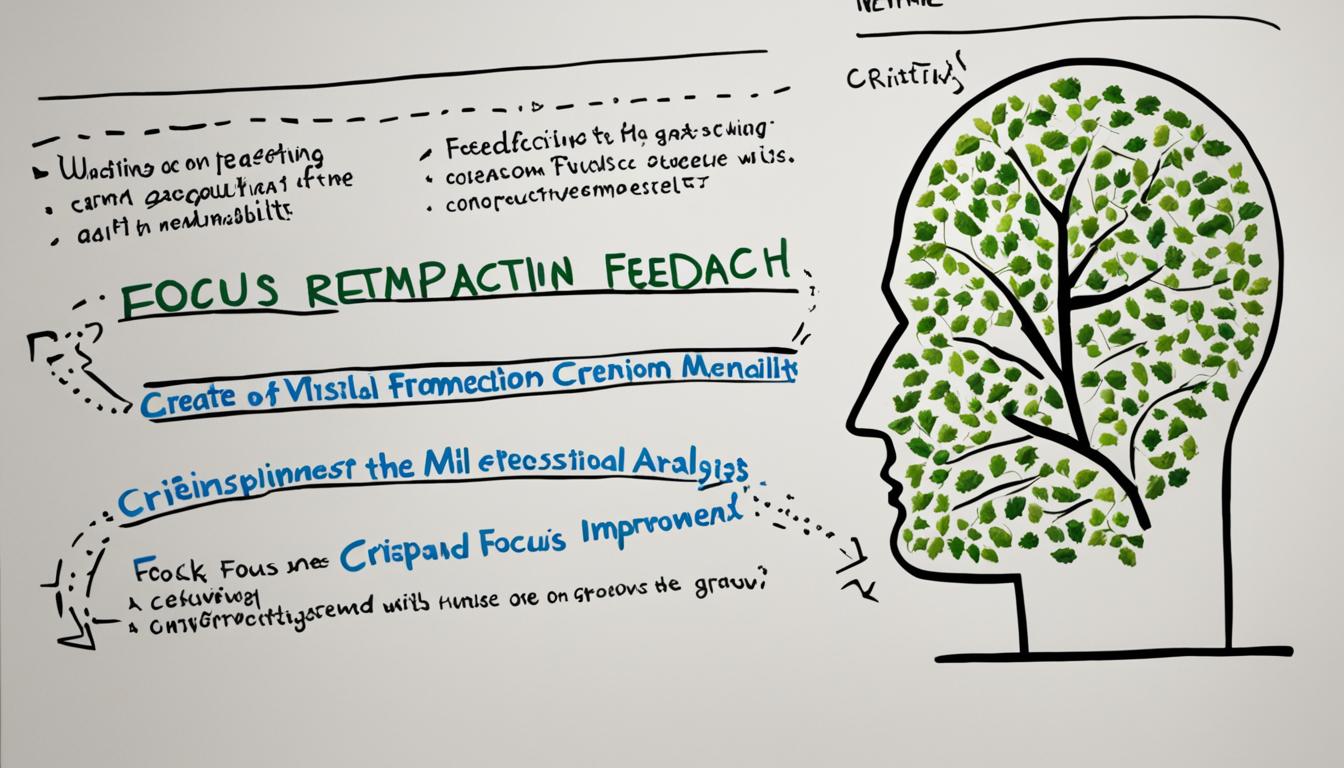Competition can be exhilarating and rewarding, but it also comes with its fair share of stress and pressure. Whether you’re an athlete, a professional, or simply someone facing a competitive challenge, it’s important to develop effective coping mechanisms to handle the demands of competition.
In this article, we will explore various stress management techniques and strategies for dealing with competitive pressure. By implementing these strategies, you can find relief from the stress of competition and develop the mental toughness needed to thrive in competitive environments.
Competition stress management involves acquiring skills and coping mechanisms to navigate the challenges and maintain your performance under pressure. With the right tools and mindset, you can turn competition stress into an opportunity for personal growth and success.
Key Takeaways:
- Developing stress coping skills is essential for handling competition pressure effectively.
- Identifying the sources of competitive stress, both external and internal, helps in understanding and managing it.
- Techniques like deep breathing, muscle relaxation, and positive self-talk can provide stress relief.
- Gaining a perspective that embraces challenges and focuses on personal growth is crucial for managing competition stress.
- Maintaining mental and physical well-being through self-care and healthy lifestyle choices is vital for resilience in competitive environments.
Understanding the Sources of Competitive Stress
The sources of competitive stress can be attributed to a combination of external and internal factors. External pressure often arises from the expectations placed on individuals by coaches, parents, or recruiters. This external pressure creates a constant demand to perform well and win, which can be incredibly stressful.
On the other hand, internal pressure is self-imposed and stems from an individual’s high expectations for success. Some individuals are very hard on themselves and set lofty goals, which can lead to increased stress levels. Furthermore, the fear of failure and rejection plays a significant role in competitive stress. The constant comparison with others, whether it be teammates, colleagues, or rivals, can also contribute to the overall stress of competition.
Techniques for Coping with Competitive Pressure
When faced with competitive pressure, it’s important to have effective coping techniques to manage stress and maintain a sense of well-being. Here are some techniques that can help:
- Deep Breathing: Take slow, deep breaths in through your nose and out through your mouth. This technique can help relax your body and calm your mind, promoting stress relief.
- Muscle Relaxation: Practice muscle relaxation techniques by contracting and releasing different muscle groups. Start from your toes and work your way up to your head. This can help release tension and promote a sense of relaxation.
- Visualization: Use the power of your imagination to visualize success. Picture yourself performing well and achieving your goals. This can boost your self-confidence and create a positive mindset.
- Positive Self-Talk: Replace negative thoughts with positive affirmations. Encourage yourself and focus on your strengths. This can help you stay motivated and resilient in the face of competition.
- Seek Support: Reach out to friends, family, or coaches for support. Share your feelings and concerns with someone who understands and can provide guidance. Having a support system can provide emotional relief and encouragement.
- Self-Care: Take care of your physical and mental well-being. Engage in activities that bring you joy and relaxation. Practice healthy eating habits, prioritize sleep, and make time for yourself. Self-care plays a crucial role in stress reduction and overall well-being.
By incorporating these coping techniques into your routine, you can effectively manage competitive pressure and navigate high-stress situations with resilience and confidence.

Expert Tip:
Remember, coping with competitive pressure is a journey, and it may take time to find the techniques that work best for you. Be patient with yourself and give yourself permission to prioritize self-care and stress relief.
The Role of Perspective in Managing Competition Stress
Perspective plays a crucial role in managing competition stress. By changing our mindset and embracing challenges, we can shift our focus from the pressure of competition to personal growth. When we view challenges as opportunities for development, we create a positive thinking environment that fosters resilience and improved performance.
Embracing challenges may initially seem daunting, but it allows us to step outside our comfort zone and discover new capabilities. Instead of fearing failure, we can approach competition with a growth-oriented mindset, recognizing that each experience is a chance to learn and improve.
“Success is not final, failure is not fatal: It is the courage to continue that counts.” — Winston Churchill
By focusing on growth, rather than solely on the outcome, we can better manage competition stress. This shift in perspective enables us to approach challenges with curiosity and excitement, rather than anxiety. We become more adaptable and open to new strategies and techniques that can enhance our performance.
Keeping a positive thinking mindset is also key in managing competition stress. When faced with setbacks or obstacles, maintaining a positive outlook allows us to persevere and find creative solutions. Positive self-talk can bolster confidence, reminding us of our strengths and capabilities, helping to combat the negative effects of stress.
Benefits of a Growth-oriented Mindset:
- Increased motivation to overcome challenges
- Improved problem-solving skills
- Enhanced creativity and innovation
- Greater resilience and adaptability
- Reduced anxiety and stress levels
By harnessing the power of perspective, changing our mindset, and embracing challenges with a focus on growth and positive thinking, we can effectively manage competition stress and unlock our full potential.
| Benefits of Perspective and Positive Thinking | How it Helps Manage Competition Stress |
|---|---|
| 1. Increased resilience | Allows us to bounce back after setbacks |
| 2. Improved problem-solving | Helps us find innovative solutions to challenges |
| 3. Reduced anxiety | Enables us to approach competition with confidence |
| 4. Enhanced motivation | Keeps us determined to overcome obstacles |
| 5. Positive self-talk | Counters negative thoughts and boosts self-belief |
Strategies for Maintaining Mental and Physical Well-being
Maintaining mental and physical well-being is crucial for effectively coping with competition stress. Our mental well-being impacts our ability to handle pressure, stay focused, and perform at our best. Likewise, our physical well-being supports our overall resilience and endurance. To maintain a healthy balance, here are some strategies to consider:
Stress Reduction Techniques
Engaging in relaxation exercises and mindfulness practices can help alleviate stress and promote mental well-being. Take a few moments each day to practice deep breathing, meditation, or other relaxation techniques that work for you. These techniques can help calm the mind and relax the body, reducing feelings of stress and anxiety.
Adaptability and Time Management
Being adaptable and managing your time effectively can greatly reduce feelings of overwhelm and promote a balanced approach to competing. Embrace the ability to adjust your plans and strategies as needed, and prioritize tasks based on their importance and deadlines. Effective time management allows you to allocate time for rest, self-care, and preparation, ensuring you have the energy and focus necessary for optimal performance.
Celebrating Achievements
Along the competitive journey, it’s important to celebrate your achievements, no matter how small they may seem. Recognize and acknowledge the progress you’ve made, and take pride in your accomplishments. Celebrating achievements boosts motivation, bolsters confidence, and contributes to overall well-being. Remember that success is a collection of small victories along the way.
“Success is not the key to happiness. Happiness is the key to success. If you love what you are doing, you will be successful.” – Albert Schweitzer
By implementing these strategies for maintaining mental and physical well-being, you can enhance your ability to cope with competition stress, stay resilient, and perform at your best.

| Strategies | Benefits |
|---|---|
| Engaging in relaxation exercises and mindfulness practices | Promotes mental well-being and reduces stress |
| Being adaptable and managing time effectively | Reduces overwhelm and ensures a balanced approach to competing |
| Celebrating achievements | Boosts motivation and contributes to overall well-being |
The Impact of Stress Management on Performance
Implementing effective stress management techniques can have a significant impact on performance in competitive environments. By effectively coping with the pressures and stressors of competition, individuals can enhance their focus, concentration, confidence, and resilience, leading to optimal performance even in high-pressure situations.
Reduced stress levels facilitate improved focus and concentration, allowing individuals to channel their energy and attention towards the task at hand. When stress is managed effectively, distractions and negative thoughts are minimized, enabling individuals to maintain a heightened level of concentration throughout their performance.
Moreover, effective stress management techniques contribute to increased confidence and resilience in competitive environments. When individuals have confidence in their ability to handle stress and perform under pressure, they are more likely to approach challenging situations with a positive mindset. This increased self-assurance fosters a greater sense of belief in one’s own abilities, ultimately enhancing performance.
“Coping with stress is an essential skill for achieving optimal performance in competitive environments. By implementing stress management techniques, individuals can improve their focus, confidence, and resilience, enabling them to perform at their best even in high-pressure situations.”
Furthermore, stress management techniques enhance resilience, allowing individuals to bounce back from setbacks and challenges more effectively. Resilience is the ability to recover quickly from adversity and to adapt to change. By incorporating stress management techniques into their routine, individuals develop the emotional strength and resilience necessary to navigate the ups and downs of competition, thereby promoting consistent and sustained performance.
Overall, effective stress management is a crucial factor in achieving optimal performance. By implementing strategies to cope with competitive pressure and reduce stress levels, individuals can enhance their focus, confidence, and resilience, enabling them to perform at their best and reach their full potential in competitive environments.
The Importance of Self-care and Healthy Lifestyle Choices
When it comes to managing competition stress, self-care and healthy lifestyle choices play a crucial role in promoting overall well-being and enhancing stress management capabilities. Prioritizing self-care activities, such as getting enough sleep, eating a balanced diet, and engaging in regular exercise, can help us cope better with the pressures of competition and maintain resilience.
Adequate sleep is essential for our physical and mental health. It allows our body and mind to rest and recover, improving cognitive function, mood, and concentration. By ensuring we get enough sleep each night, we can approach competition with a clear and focused mind, ready to perform at our best.
Nutrition also plays a significant role in our well-being. Consuming a balanced diet that includes a variety of nutrient-rich foods provides our body with the necessary fuel and nutrients for optimal performance. Eating a diet rich in fruits, vegetables, lean proteins, and whole grains can boost our energy levels, support our immune system, and enhance our overall health.
Engaging in regular exercise is another pillar of a healthy lifestyle. Exercise not only improves our physical fitness but also releases endorphins, the “feel-good” hormones, which can help reduce stress and boost mood. Incorporating exercise into our routine, whether it’s a daily walk, yoga class, or strength training, can have significant benefits for both our physical and mental well-being.
Self-care Activities
Practicing self-care activities can further enhance our ability to cope with competition stress. Taking time for activities we enjoy, such as reading, listening to music, or pursuing hobbies, can provide a much-needed break from the pressures of competition and promote relaxation.
Additionally, engaging in relaxation techniques, such as deep breathing exercises or meditation, can help calm our mind and reduce stress levels. These practices promote mindfulness, helping us stay present and focused, rather than getting overwhelmed by competition-related stress.
Self-care and Healthy Lifestyle Choices
| Self-care and Healthy Lifestyle Choices | Benefits |
|---|---|
| Getting enough sleep | – Improved cognitive function and concentration – Enhanced mood and well-being – Reduced stress levels |
| Eating a balanced diet | – Increased energy levels and stamina – Strengthened immune system – Overall improved health |
| Engaging in regular exercise | – Better physical fitness – Reduced stress and improved mood – Enhanced mental well-being |
| Practicing self-care activities | – Relaxation and stress relief – Improved overall well-being – Increased resilience |
By prioritizing self-care and making healthy lifestyle choices, we can better equip ourselves to cope with competition stress and enhance our overall well-being. Taking care of our physical and mental health is essential for maintaining resilience, managing stress effectively, and performing at our best in competitive environments.
Conclusion
Coping with competitive pressure is a crucial skill for achieving success in competitive environments. By implementing effective stress management techniques, maintaining a positive mindset, and prioritizing self-care, we can effectively manage and cope with the stress that comes with competition. Building mental toughness and resilience allows us to thrive in high-pressure situations, leading to improved performance and overall success.
By developing coping strategies and utilizing stress relief techniques, we can better navigate the challenges that arise in competitive environments. Deep breathing exercises, muscle relaxation techniques, and visualization can help calm our minds and bodies, allowing us to perform at our best. Engaging in positive self-talk and seeking support from loved ones or mentors can provide emotional relief and encouragement. Additionally, practicing self-care through healthy lifestyle choices, such as getting enough sleep, eating well, and exercising regularly, fosters our overall well-being and strengthens our ability to handle competitive pressure.
As we develop these skills and prioritize our mental and physical well-being, we set ourselves up for success. Through effective stress management, we improve our focus, confidence, and resilience, enabling us to perform optimally even in the face of intense competition. Coping with competitive pressure is not merely about surviving; it is about thriving and achieving the success we desire.
FAQ
What is competitive pressure?
Competitive pressure refers to the stress and expectation placed on individuals in competitive environments, whether it be in sports, work, or other areas of life. It can come from external sources, such as coaches or parents, as well as internal sources, such as personal expectations and fear of failure.
How can I cope with competitive pressure?
There are several techniques for coping with competitive pressure. Deep breathing exercises, muscle relaxation techniques, and visualization can help relax the mind and body. Engaging in positive self-talk, seeking support from others, and practicing self-care activities like healthy eating and enough sleep can also help alleviate stress and manage competitive pressure.
How can perspective help in managing competition stress?
Perspective plays a crucial role in managing competition stress. By changing your mindset and viewing challenges as opportunities for growth, you can shift your focus from the pressure of competition to personal development. Embracing challenges and maintaining a positive thinking can help reduce stress and improve performance.
What strategies can I use to maintain mental and physical well-being in competitive environments?
Strategies for maintaining mental and physical well-being in competitive environments include engaging in stress reduction techniques like relaxation exercises and mindfulness practices. Being adaptable to different situations and managing time effectively can also reduce feelings of overwhelm. Additionally, celebrating small achievements can boost motivation and contribute to overall well-being.
How does stress management impact performance?
Effective stress management techniques can have a significant impact on performance. By reducing stress levels, individuals can improve their focus, concentration, and overall performance. Increased confidence and resilience, as a result of stress management, also contribute to optimal performance in high-pressure situations.
Why is self-care and healthy lifestyle choices important for managing competition stress?
Prioritizing self-care activities, such as getting enough sleep, eating a balanced diet, and exercising regularly, is essential for managing competition stress. Taking care of your physical and mental health helps build resilience and improves your ability to cope with the pressures of competition.
How can coping with competitive pressure contribute to success?
Coping with competitive pressure is a necessary skill for achieving success in competitive environments. By implementing stress management techniques, maintaining a positive mindset, and prioritizing self-care, individuals can effectively manage and cope with competition stress. Building mental toughness and resilience allows individuals to thrive in high-pressure situations, leading to improved performance and overall success.



